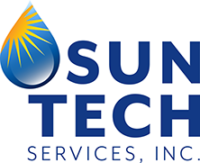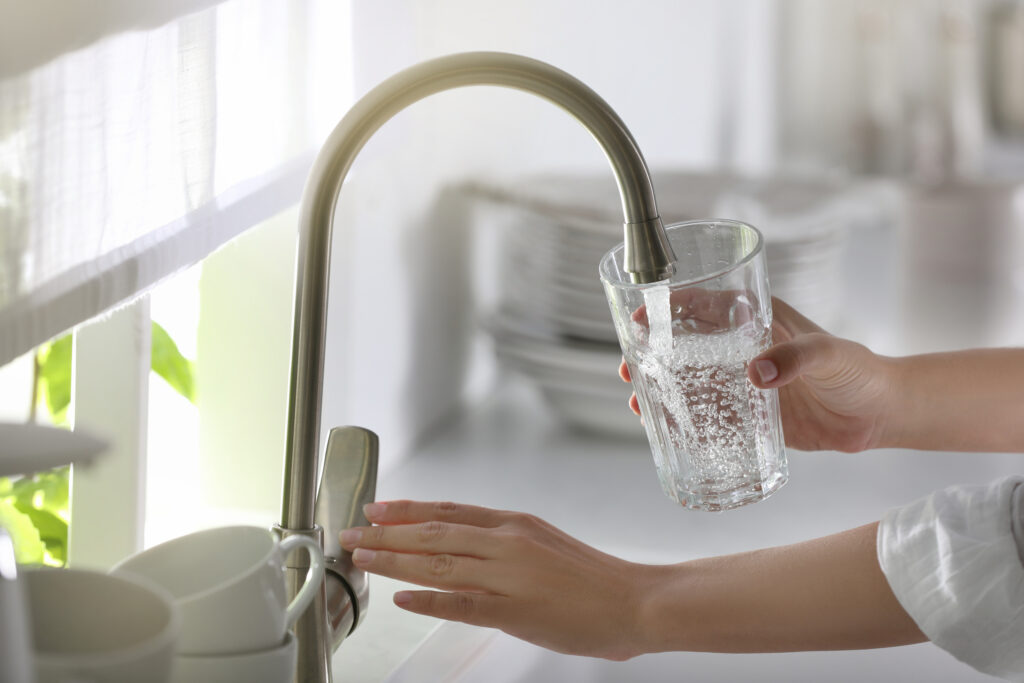The global bottled water industry has a market size of 283 billion. Since the 1970s, bottled water has slowly risen to the status of America’s top beverage. We encounter them at office meetings, parties, sports events, and on the shelves of all grocery stores and gas stations.
Bottled water is everywhere and most people might not pay much attention. Yet, this industry is an ever-growing and competitive field that needs to keep up with Americans’ demands. Yet, it is not without consequence. Bottled water requires a lot of energy for production, and the empty bottles most commonly end up in landfills.
So what’s the benefit of filtered tap water over bottled water? Let’s look at the specifics.
As the premier home filtration specialists in Las Cruces, Sun-Tech Services is here to take care of all your water needs. Give our team a call today — (575) 523-2400
The Environmental Consequences of Bottled Water
A well-known detail about bottled water is the sheer amount of pollution produced.
While sales of bottled water continue to be an important part of the bottled drink sector, many have raised concerns about the environmental impact of the bottles. According to Harvard University, the production and life cycle of bottled water includes the use of fossil fuels, causes pollution, or can contribute to harmful carbon emissions.
Estimates suggest that about 17 million barrels of oil are used to produce plastic water bottles to match the high demand for bottled water in the United States.
Costs associated with bottled water include:
- Production
- Transportation
- Environmental cost associated with waste management (many bottles end up in landfills)
While governmental regulations have improved the production of plastic bottles and reduced the amount of plastic they use, the abundance of plastic bottles puts a strain on the environment.
Those bottles that contain polyethylene terephthalate (PET) make it difficult for the material to biodegrade. PET makes it difficult for bacteria to decompose, so it takes much longer.
The Cost of Bottled Water
The main reason why installing a water filtration system in your home is better is because of the cost. The estimated cost for tap water, for example, is $0.02 per gallon, while bottled water is $0.64 per gallon. When installing a filtration system in your home, you pay the initial cost of the filtration system and can then enjoy years of clear tap water.
Filtered tap water provides the best of both worlds: A cheaper alternative that guarantees clean and healthy drinking water. Over time, a home filtration system makes up for the initial expense by ensuring you have an endless supply of clear water.
A Look at the History and Rise of Bottled Water
But how did the bottled water industry become what it is today? Let’s take a quick look at how bottled water has dominated the consumer markets. The history of bottled water begins much earlier than one might think.
The 1800s
By the mid-1800s, bottled water was already being sold by the millions in the U.S. At this point, bottles were still made out of glass. The craze was mostly for imitation mineral water and was fed by the public’s fear of water-acquired typhoid or cholera. Carbonated water became increasingly popular also when glass production costs decreased and made it more accessible to average folks.
The Early 20th Century
In the early 20th century, the fear of waterborne typhoid slowly faded away as an English physician introduced the concept of chlorination for water purification purposes.
The 1970s
In the early 70s, Polyethylene terephthalate was used to create the first bottles that have the capacity to withstand the pressure of carbonation. This material is far easier and cheaper to produce than glass, which made it the perfect material for mass-producing bottled water.
Perrier: The First Brand to Bottle Water on a Large Scale
The first brand to launch this on a big scale was Perrier, which called itself the “Earth’s First Soft Drink.” It gained a competitive edge through some seriously clever marketing and by positioning itself as a healthier alternative to soft drinks and some of the artificial sweeteners used in diet sodas.
The company purchased print and television ads and it marked the moment that kickstarted the commercial success of mineral water. Perrier’s sales in the United States reached 3 million bottles in 1975 and, five years later, were up to 200 million.
Other Companies Followed Suit, Joining the Bottled Water Craze
Slowly, companies realized that they could bottle regular spring water and market it as healthier. Cultural movements adopted the look of bottled water and hyped it up as a healthier, more convenient alternative as Americans fell into consumer trends of healthy diets and exercise.
The International Bottled Water Association, however, does have a code of standards that dictates to advertisements that they cannot overly exploit fears about public drinking waters.
Soft drink companies like Pepsi eventually got into the bottled water craze. Aquafina, the Pepsi-owned water brand rolled out a massive marketing campaign in the late nineties and became another popular competitor.
Get Clean Water Without the Cost By Installing a Water Filtration System
When you have access to filtered water in your home, all you need is a couple of reusable bottles that you can fill up constantly and take on the go or reach out to your tap for safe and filtered drinking water.
Do you have questions about installing a water filtration system in your home? Call Sun Tech Services today and learn more!

